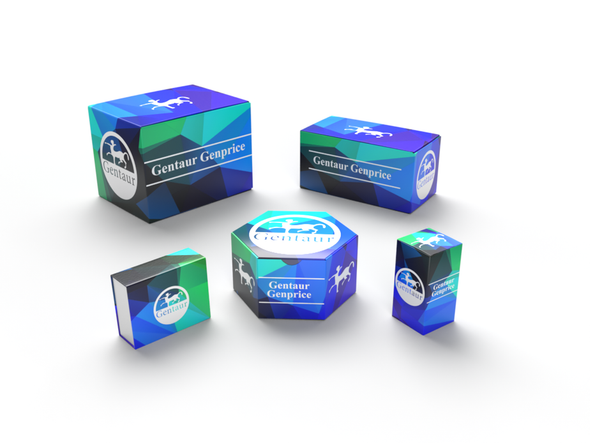Description
NFKB1 Antibody | 15-709 | Gentaur UK, US & Europe Distribution
Host: Rabbit
Reactivity: Human, Mouse, Rat
Homology: N/A
Immunogen: Recombinant fusion protein containing a sequence corresponding to amino acids 300-433 of human NFKB1 (NP_003989.2) .
Research Area: Apoptosis, Cancer, Cell Cycle, Immunology, Innate Immunity, Signal Transduction, Transcription
Tested Application: WB
Application: WB: 1:500 - 1:2000
Specificiy: N/A
Positive Control 1: SH-SY5Y
Positive Control 2: Jurkat
Positive Control 3: HeLa
Positive Control 4: K-562
Positive Control 5: Mouse lung
Positive Control 6: Mouse spleen
Molecular Weight: Observed: 55kDa
Validation: N/A
Isoform: N/A
Purification: Affinity purification
Clonality: Polyclonal
Clone: N/A
Isotype: IgG
Conjugate: Unconjugated
Physical State: Liquid
Buffer: PBS with 0.02% sodium azide, 50% glycerol, pH7.3.
Concentration: N/A
Storage Condition: Store at -20˚C. Avoid freeze / thaw cycles.
Alternate Name: NFKB1, p50, KBF1, p105, EBP-1, NF-kB1, NFKB-p50, NFkappaB, NF-kappaB, NFKB-p105, NF-kappa-B
User Note: Optimal dilutions for each application to be determined by the researcher.
BACKGROUND: This gene encodes a 105 kD protein which can undergo cotranslational processing by the 26S proteasome to produce a 50 kD protein. The 105 kD protein is a Rel protein-specific transcription inhibitor and the 50 kD protein is a DNA binding subunit of the NF-kappa-B (NFKB) protein complex. NFKB is a transcription regulator that is activated by various intra- and extra-cellular stimuli such as cytokines, oxidant-free radicals, ultraviolet irradiation, and bacterial or viral products. Activated NFKB translocates into the nucleus and stimulates the expression of genes involved in a wide variety of biological functions. Inappropriate activation of NFKB has been associated with a number of inflammatory diseases while persistent inhibition of NFKB leads to inappropriate immune cell development or delayed cell growth. Alternative splicing results in multiple transcript variants encoding different isoforms, at least one of which is proteolytically processed.






